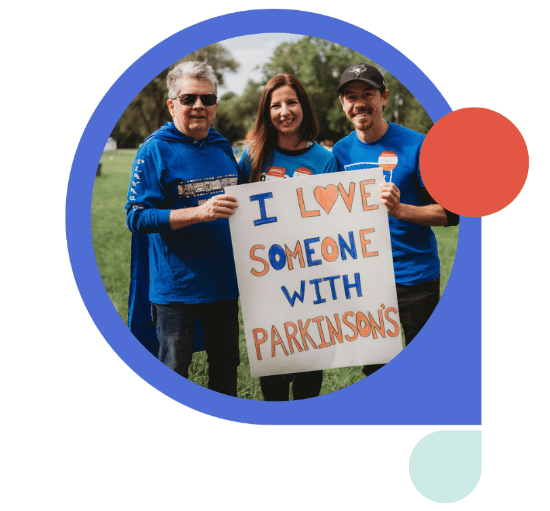Parkinson’s disease (PD) is a progressive movement disorder of the nervous system. Your nervous system allows you to understand, respond to, and make sense of the world around you. It operates all of the other vital systems in your body that help you breathe, digest, move, talk, learn, see, hear, and so much more.
Everyone’s experience with Parkinson’s is unique. The way it affects daily life varies from person to person. Some may experience tremors or stiffness, while others may notice changes in speech, walking, or energy levels. Aside from the physical conditions, the emotional and mental health considerations are equally important to understand.
The average age of onset is in a person’s early to mid-60s, and the incidence rises significantly as people age. About 1 in 400 people in their 60s have Parkinson’s, 1 in 100 people aged 70, and 1 in 40 for people aged 80. It is not clear yet why men are more likely to develop PD than women. Currently, there is no cure for PD, but some medications can improve many of the movement symptoms of Parkinson’s disease.

Managing the Stigma around Parkinson’s
Stigma occurs when someone sees you negatively because of a particular characteristic or attribute. Many people with Parkinson’s also experience internal stigma. It’s what we tell ourselves others think of us based on the social and institutional stigma we’ve seen over the course of our lives.
Internal stigma can lead to developing depression and significantly impact the quality of life for people with Parkinson’s.
Some of the signs are:
- Not participating in social meals when you’re experiencing swallowing difficulties leads to feelings of isolation.
- Hiding your diagnosis for fear of the people in your life treating you differently or acting differently around you.
- Not going for daily walks any longer because, during a previous walk, someone misattributed your shuffling to alcohol misuse and made a hurtful remark.
- Feeling diminished when using assistive devices like walkers, wheelchairs or canes.
- A care partner experiencing burnout but is unable to accept the help of respite care because of an overwhelming sense of guilt in doing so.
Stigma not only impacts the person diagnosed with Parkinson’s, it can affect the mental health of the community of people who surround them, so understanding how to reduce the stigma, will have lasting improvements on the quality of life for people living with Parkinson’s.
Educating Yourself
The most important action we can take is educating ourselves on the disease and its symptoms and resolving any internal stigma. Find a support community to meet people who have been living with Parkinson’s and learn how they cope with the changes. Check out Parkinson’s Canada or Parkinson Society Southwestern Ontario for support groups.

April is Parkinson’s Awareness Month and the organization provides a plethora of resources, a support line, and community events on the disease and support groups to help you understand Parkinson’s and live a better quality of life.
Here is an uplifting personal story written by Andy Robinson on his journey: Finding Strength in Community: My Journey with Parkinson’s
This article is a helpful resource: 5 Myths About Parkinson’s Disease
Parkinson’s Disease Care Services
At Promyse Home Care, we provide compassionate and specialized care for seniors, particularly those facing the challenges of Parkinson’s Disease. Our mission is to enhance the quality of life for individuals and families in the Kitchener-Waterloo community by offering tailored home care services that address the unique needs of those living with Parkinson’s.
- Medication Management
- Mobility Assistance & Home Safety
- Cognitive & Emotional Care
Our caregivers are not just professionals, they are compassionate individuals dedicated to making a positive difference in the lives of those they serve. We prioritize empathy, respect, and dignity in all aspects of our care services.
Promyse Home Care believes in a collaborative approach to care. We work closely with healthcare professionals, including physicians, therapists, and other specialists, to ensure our clients’ holistic and well-rounded care experience.



